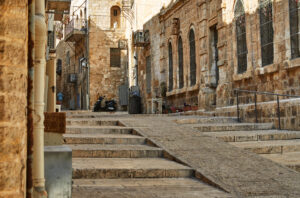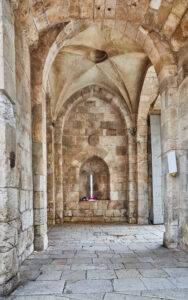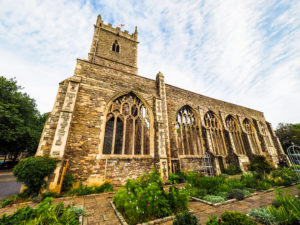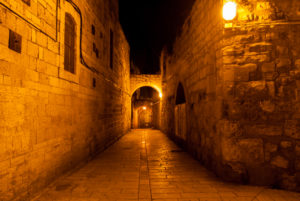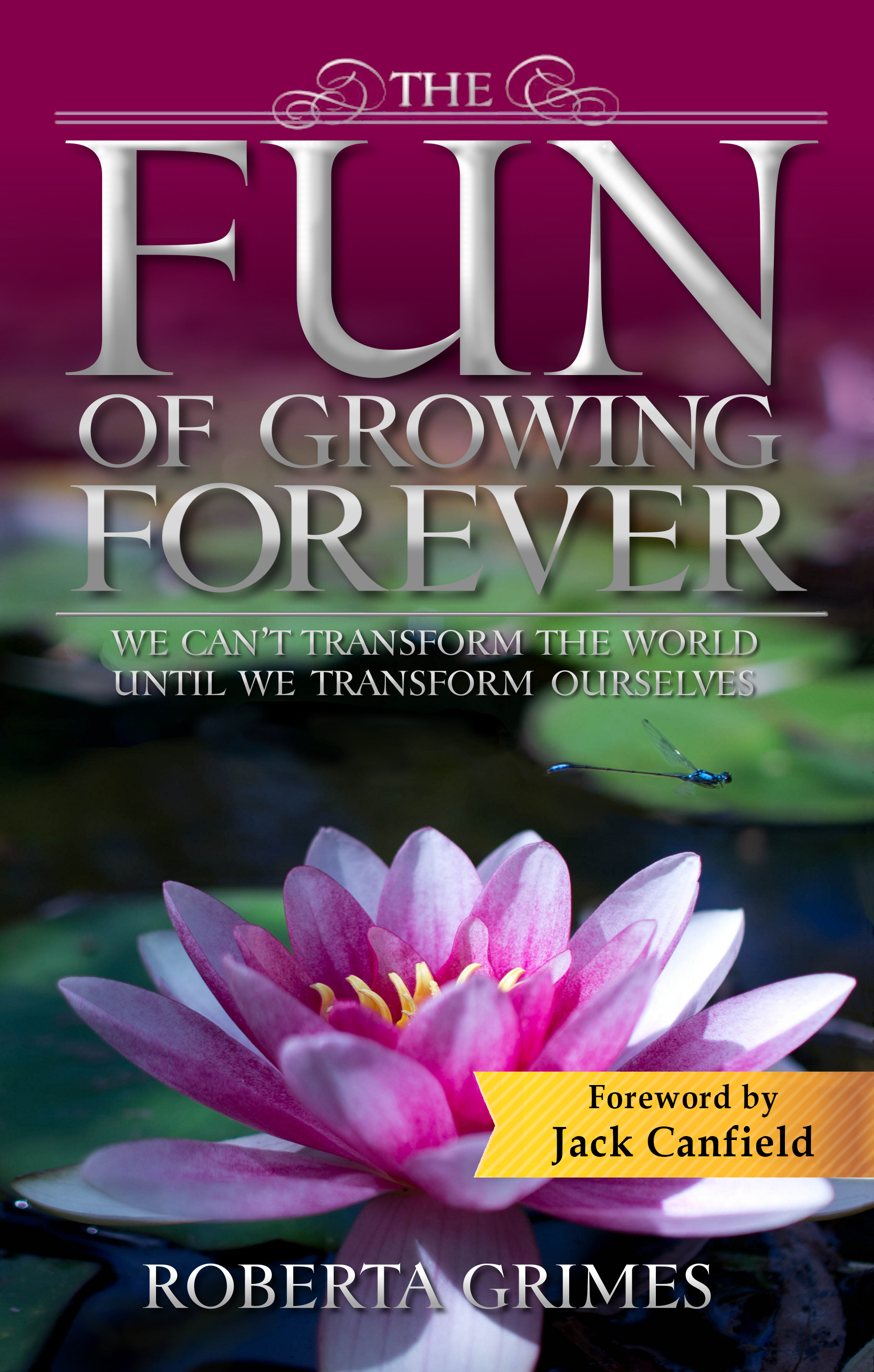Out of the night that covers me,
Black as the pit from pole to pole,
I thank whatever gods may be
For my unconquerable soul.
In the fell clutch of circumstance
I have not winced nor cried aloud.
Under the bludgeonings of chance
My head is bloody, but unbowed.
Beyond this place of wrath and tears
Looms but the Horror of the shade,
And yet the menace of the years
Finds and shall find me unafraid.
It matters not how strait the gate,
How charged with punishments the scroll,
I am the master of my fate,
I am the captain of my soul.
– William Ernest Henley (1849-1903), “Invictus” (1875)
 One of the oddest debates in materialist science is about whether or not human beings have free will. This debate is a longstanding one, and it can be maddening to those who are watching it, since most materialist scientists claim that human free will is a mere illusion. We last discussed this issue here two years ago, when I mentioned professional atheist Sam Harris’s book on this subject. I was sure when I first read his book that he would think the whole idea of no free will was ridiculous. After all, Harris himself is such an adamant free spirit! But amazingly, I found that he had bought into the lie, hook, line, and sinker. This controversy first acutely arose when a researcher named Benjamin Libet showed in the 1980s that muscular and nervous preparations to move a digit begin about 350 milliseconds before we make the conscious decision to move it, thereby proving to many materialist scientists that human beings have no free will. There are some scientists who are sure that Libet’s work proves no such thing; but theirs is a minority view. So scientists who still stubbornly believe in free will are now mostly relegated to the religionist side of the battle between science and religion that goes back as far as Plato and Aristotle.
One of the oddest debates in materialist science is about whether or not human beings have free will. This debate is a longstanding one, and it can be maddening to those who are watching it, since most materialist scientists claim that human free will is a mere illusion. We last discussed this issue here two years ago, when I mentioned professional atheist Sam Harris’s book on this subject. I was sure when I first read his book that he would think the whole idea of no free will was ridiculous. After all, Harris himself is such an adamant free spirit! But amazingly, I found that he had bought into the lie, hook, line, and sinker. This controversy first acutely arose when a researcher named Benjamin Libet showed in the 1980s that muscular and nervous preparations to move a digit begin about 350 milliseconds before we make the conscious decision to move it, thereby proving to many materialist scientists that human beings have no free will. There are some scientists who are sure that Libet’s work proves no such thing; but theirs is a minority view. So scientists who still stubbornly believe in free will are now mostly relegated to the religionist side of the battle between science and religion that goes back as far as Plato and Aristotle.
 But of course, you and I well understand that our decision to move a digit is not made in the brain. Rather, it is made in our mind, and our mind is a part of the great universal Consciousness which underlies all of reality. Then our mind notifies our digit to move, and only then does our mind make our brain aware of what our decision has been, so that 350-millisecond gap is actually quite easy to explain. And thus, you will be relieved to learn, our better understanding of the nature of Consciousness and its primary role in reality has given you back your free-will right to decide what you are going to have for breakfast.
But of course, you and I well understand that our decision to move a digit is not made in the brain. Rather, it is made in our mind, and our mind is a part of the great universal Consciousness which underlies all of reality. Then our mind notifies our digit to move, and only then does our mind make our brain aware of what our decision has been, so that 350-millisecond gap is actually quite easy to explain. And thus, you will be relieved to learn, our better understanding of the nature of Consciousness and its primary role in reality has given you back your free-will right to decide what you are going to have for breakfast.
What is very important, too, is the fact that our deeper understanding of the primary role of Consciousness lets us better understand the teaching role of Jesus in our spiritual development. Please think about this! If we come to earth primarily so we can learn and grow spiritually, but then while we are here all our spiritual challenges are confronted by mere automatons of people who have no free-will ability to make decisions because all our decisions are being made for us, then how on earth can any of us ever learn and grow spiritually, even by an inch? It is in our very need to learn and grow spiritually that our need for an unfettered free will is most essential!
 Most of our basic human learning is what we might call simple rote-learning. During that first learning, which happens in babyhood and childhood, we are primarily in download mode. No free will really is needed there. Actually, during those first nearly two decades we spend a lot of time just learning to become successfully functioning human beings, able to live and to navigate in this complex material world, and becoming fully adapted to it and emotionally invested in it. This is all so we will be comfortable in our surroundings, and not distracted by them as our adult spiritual challenges begin to occur.
Most of our basic human learning is what we might call simple rote-learning. During that first learning, which happens in babyhood and childhood, we are primarily in download mode. No free will really is needed there. Actually, during those first nearly two decades we spend a lot of time just learning to become successfully functioning human beings, able to live and to navigate in this complex material world, and becoming fully adapted to it and emotionally invested in it. This is all so we will be comfortable in our surroundings, and not distracted by them as our adult spiritual challenges begin to occur.
When my Thomas first took me to meet Jesus in the astral plane eighteen months ago, and Jesus then told me His personal eternal-life story, I was frankly blown away by it. Jesus had begun His existence in ancient times as a normal human being whose one great talent was an extraordinary ability to love His fellow Man. Jesus had always been so naturally good at loving, and so driven by His deep personal need to love, that He had become a spiritually perfected being fully six thousand years ago, easy-peasy for Him, and welcome to the Godhead Collective! But of course, if you are so deeply driven by such a profound love for all of humankind, you are not about to happily join the Godhead and just let the rest of humankind flounder on in ignorance through countless more lifetimes to come.
 When Jesus first realized that the whole point of human life was to learn how to ever better love and forgive, and to thereby raise our spiritual vibrations, He was distressed to realize that everyone else was not already very well aware of that fact! People were living lifetime after lifetime, and making very little spiritual progress with each lifetime because they had no idea about even why they were here. So rather than joining the Godhead Collective, Jesus spent the next four thousand years convincing God to allow Him to return to earth in order to teach all of us how to do what He had so easily done naturally. He wanted each of us to be able to raise our own consciousness vibrations sufficiently to quickly become perfected beings, just as He had done. (This whole story as He told it to me is now posted on teachingsbyjesus.com.) Jesus had no need to die for our sins. No, that later Christian dogma was just part of the Emperor Constantine’s religion-building process. It was Constantine’s separate deeply fear-based idea. So then Jesus was by His own choice born from the Godhead two thousand years ago to be our spiritual Teacher.
When Jesus first realized that the whole point of human life was to learn how to ever better love and forgive, and to thereby raise our spiritual vibrations, He was distressed to realize that everyone else was not already very well aware of that fact! People were living lifetime after lifetime, and making very little spiritual progress with each lifetime because they had no idea about even why they were here. So rather than joining the Godhead Collective, Jesus spent the next four thousand years convincing God to allow Him to return to earth in order to teach all of us how to do what He had so easily done naturally. He wanted each of us to be able to raise our own consciousness vibrations sufficiently to quickly become perfected beings, just as He had done. (This whole story as He told it to me is now posted on teachingsbyjesus.com.) Jesus had no need to die for our sins. No, that later Christian dogma was just part of the Emperor Constantine’s religion-building process. It was Constantine’s separate deeply fear-based idea. So then Jesus was by His own choice born from the Godhead two thousand years ago to be our spiritual Teacher.
And Jesus is such an extraordinary Teacher! Oh my goodness, He is truly amazing. When I first realized about thirteen years ago that His role on earth was to be our Teacher, and I took Him seriously in that role, I said, Okay, Jesus, so please let me be your guinea pig. Let’s see if Your teachings really work as intended. And I discovered that, yes indeed, they do work beautifully. And they work within months! I ended up putting them in The Fun of Growing Forever. It would have been trickier for Jesus to teach what He wanted to teach us when He was on earth, because the first step really has to be to leave your fear-based religion behind, and back then no one would have understood a spiritual teacher who was not a clergyman. But what a joy it is to watch that beautiful young man throw off every religious and cultural inhibition, and simply teach us the love-based truth!
 That is actually what the story of Jesus and the woman at the well is about. It comes at the start of His public ministry, and in His encounter with the woman at the well, Jesus broke three important Jewish customs. First, He spoke to a female stranger. Second, she was a Samaritan woman, a member of a group the Jews traditionally disdained. And third, He asked her to give Him a drink, which would have made Him ceremonially unclean just from using her drinking vessel. All of this shocked the woman at the well. But Jesus lived in unrestrained love, free from all laws and customs. And the boldness and confidence with which He did these things right at the start of His ministry is amazing!
That is actually what the story of Jesus and the woman at the well is about. It comes at the start of His public ministry, and in His encounter with the woman at the well, Jesus broke three important Jewish customs. First, He spoke to a female stranger. Second, she was a Samaritan woman, a member of a group the Jews traditionally disdained. And third, He asked her to give Him a drink, which would have made Him ceremonially unclean just from using her drinking vessel. All of this shocked the woman at the well. But Jesus lived in unrestrained love, free from all laws and customs. And the boldness and confidence with which He did these things right at the start of His ministry is amazing!
This comes from Chapter Four of the Gospel of John: “3He left Judea and went away again to Galilee. 4 And He had to pass through Samaria. 5 So He came to a city of Samaria called Sychar, near the parcel of land that Jacob gave to his son Joseph; 6 and Jacob’s well was there. So Jesus, tired from His journey, was just sitting by the well. It was about the sixth hour.7 A woman of Samaria came to draw water. Jesus said to her, ‘Give Me a drink.’ 8 For His disciples had gone away to the city to buy food. 9 So the Samaritan woman said to Him, ‘How is it that You, though You are a Jew, are asking me for a drink, though I am a Samaritan woman?’ (For Jews do not associate with Samaritans.) 10 Jesus replied to her, ‘If you knew the gift of God, and who it is who is saying to you, “Give Me a drink,” you would have asked Him, and He would have given you living water.’ 11 She said to Him, ‘Sir, You have no bucket and the well is deep; where then do You get this living water? 12 You are not greater than our father Jacob, are You, who gave us the well and drank of it himself, and his sons and his cattle?’ 13 Jesus answered and said to her, ‘Everyone who drinks of this water will be thirsty again; 14 but whoever drinks of the water that I will give him shall never be thirsty; but the water that I will give him will become in him a fountain of water springing up to eternal life.’”
“15 The woman said to Him, ‘Sir, give me this water so that I will not be thirsty, nor come all the way here to draw water.’ 16 He said to her, ‘Go, call your husband and come here.’ 17 The woman answered and said to Him, ‘I have no husband.’ Jesus said to her, ‘You have correctly said, “I have no husband”; 18 for you have had five husbands, and the one whom you now have is not your husband; this which you have said is true.’ 19 The woman said to Him, ‘Sir, I perceive that You are a prophet. 20 Our fathers worshiped on this mountain, and yet you Jews say that in Jerusalem is the place where one must worship.’ 21 Jesus said to her, ‘Believe Me, woman, that a time is coming when you will worship the Father neither on this mountain nor in Jerusalem. 22 You Samaritans worship what you do not know; we worship what we do know, because salvation is from the Jews. 23 But a time is coming, and even now has arrived, when the true worshipers will worship the Father in spirit and truth; for such people the Father seeks to be His worshipers. 24 God is spirit, and those who worship Him must worship in spirit and truth.’ 25 The woman said to Him, ‘I know that Messiah is coming (He who is called Christ); when that One comes, He will declare all things to us.’ 26 Jesus said to her, ‘I am He, the One speaking to you’” (JN 4:3-26).
 This is in some ways the most extraordinary passage in all four Gospels. Especially coming, as it does, right at the start of Jesus’s ministry. Not only is Jesus breaking every social convention in speaking to a Samaritan woman and asking her for water. But here, for the first time in His earthly life as Jesus, He is proclaiming Himself to be the Messiah. And He is choosing to make that very important initial announcement… to a despised Samaritan woman. Jesus is telling us in no uncertain terms that He will not be inhibited by any human conventions whatsoever, but rather that love is His only law.
This is in some ways the most extraordinary passage in all four Gospels. Especially coming, as it does, right at the start of Jesus’s ministry. Not only is Jesus breaking every social convention in speaking to a Samaritan woman and asking her for water. But here, for the first time in His earthly life as Jesus, He is proclaiming Himself to be the Messiah. And He is choosing to make that very important initial announcement… to a despised Samaritan woman. Jesus is telling us in no uncertain terms that He will not be inhibited by any human conventions whatsoever, but rather that love is His only law.
Before Jesus told me His life-story, He still seemed like Magic-Jesus to me, as He had been for my entire life. He probably at one time seemed that way to you as well. Perhaps He still does. The whole born in a manger, and then the angels came, the Son of God, and crucified, rose from the dead, and all of that: If ever anyone was a not-real, larger than life individual, it was Jesus. To have my spirit guide tell me that he himself had once been Thomas Jefferson had been stretching things pretty far to begin with; but I had gotten used to that. We even had written a book about Thomas Jefferson together. But then Thomas took me to meet with Jesus in the astral plane, which was so far off-the-charts unbelievable! And then came the story that Jesus told me, and I began to know the genuine person that He is, and that brought Him more down to earth and personal for me.
 The thing about Jesus is that in person, Jesus is the humblest, really the least full of Himself Person that you can imagine. When you meet Him, He makes it all about you. Which is odd, because He has this overwhelmingly powerful and absolutely silken personal energy that shouts how important He actually is. And yet when He looks into your eyes, He does it as if in that moment, you are all that matters to Him. “But, but, He is God!” You might be protesting now. And the last thing you would expect of the Ultimate High God, Creator of the Universe, would be humility! I thought that at first as well. But the more I thought about it, the more I realized that perhaps it would be rather like God to love each one of us deeply, as a mother loves her precious child. Think of it! This whole universe is God’s creation. And God creates all of it to give us a place to grow spiritually. Wow. You had better believe that God truly and deeply loves each one of us!
The thing about Jesus is that in person, Jesus is the humblest, really the least full of Himself Person that you can imagine. When you meet Him, He makes it all about you. Which is odd, because He has this overwhelmingly powerful and absolutely silken personal energy that shouts how important He actually is. And yet when He looks into your eyes, He does it as if in that moment, you are all that matters to Him. “But, but, He is God!” You might be protesting now. And the last thing you would expect of the Ultimate High God, Creator of the Universe, would be humility! I thought that at first as well. But the more I thought about it, the more I realized that perhaps it would be rather like God to love each one of us deeply, as a mother loves her precious child. Think of it! This whole universe is God’s creation. And God creates all of it to give us a place to grow spiritually. Wow. You had better believe that God truly and deeply loves each one of us!
 There is something else, too, that is amazing about that moment between Jesus and the woman at the well. Jesus talks about giving her “living water,” and He says that “whoever drinks of the water that I will give him shall never be thirsty; but the water that I will give him will become in him a fountain of water springing up to eternal life.” And the water in the afterlife actually is alive! When I first read that Gospel passage, I realized that Jesus knew about the living water in the afterlife. He actually had been to the same afterlife that my research had been revealing to me! And then, soon after that, I discovered that the Shroud of Turin is genuine, and it can be used to confirm that Jesus actually did rise from the dead. What a heady time that was for me, when I first understood that all my research could be used to confirm that Jesus is genuine in every conceivable way!
There is something else, too, that is amazing about that moment between Jesus and the woman at the well. Jesus talks about giving her “living water,” and He says that “whoever drinks of the water that I will give him shall never be thirsty; but the water that I will give him will become in him a fountain of water springing up to eternal life.” And the water in the afterlife actually is alive! When I first read that Gospel passage, I realized that Jesus knew about the living water in the afterlife. He actually had been to the same afterlife that my research had been revealing to me! And then, soon after that, I discovered that the Shroud of Turin is genuine, and it can be used to confirm that Jesus actually did rise from the dead. What a heady time that was for me, when I first understood that all my research could be used to confirm that Jesus is genuine in every conceivable way!
 And then, of course, Thomas decided that it was time for me actually to meet Jesus. My Thomas was so wise in the way that he handled this! By the time I met Jesus, Thomas had already resolved all my potential reservations. I knew that Jesus was a genuine historical figure who had, moreover, actually risen from the dead. At one time I had been, if you will pardon the expression, a modern doubting Thomas of sorts. I wanted so much to believe! But even despite my childhood experience of light, and my second such experience in young adulthood, I was – and I remain – a natural skeptic. So then I met Jesus, and thanks to Thomas’s already having addressed whatever reservations about Him I still might have had, just my finally seeing Jesus, and feeling His amazing personal energy, readily resolved whatever doubts remained. Jesus is, and for you and me He carefully maintains Himself eternally to be, fully God and fully Man. I try to understand what it must be to love people as Jesus loves people. I really do try. But there are not enough words of love and praise in all the languages of the earth to express how I now feel for my beloved Jesus.
And then, of course, Thomas decided that it was time for me actually to meet Jesus. My Thomas was so wise in the way that he handled this! By the time I met Jesus, Thomas had already resolved all my potential reservations. I knew that Jesus was a genuine historical figure who had, moreover, actually risen from the dead. At one time I had been, if you will pardon the expression, a modern doubting Thomas of sorts. I wanted so much to believe! But even despite my childhood experience of light, and my second such experience in young adulthood, I was – and I remain – a natural skeptic. So then I met Jesus, and thanks to Thomas’s already having addressed whatever reservations about Him I still might have had, just my finally seeing Jesus, and feeling His amazing personal energy, readily resolved whatever doubts remained. Jesus is, and for you and me He carefully maintains Himself eternally to be, fully God and fully Man. I try to understand what it must be to love people as Jesus loves people. I really do try. But there are not enough words of love and praise in all the languages of the earth to express how I now feel for my beloved Jesus.





















